„A well-nourished, healthy and educated population is the foundation for growth and economic development.“ - World Food Programme (WFP)
The story of Ngaara Primary School grabbed our attention and brought us to Uganda. Allow me to introduce you…
Ngaara Primary School is situated in Nyamitanga parish on the outskirts of Mbarara in Western Uganda. Ngaara School, which is a „government school“, exists since over 40 years and has 426 pupils on roll. While the school used to be housed in crumbling clay built classrooms with mud floors, it is now a compound of three brick buildings housing 6 classrooms. As well as that, the schooling has improved immensely since the worry of not being able to feed the children every day has been taken away. All of this was made possible through fundraising and donations over the past 10 years.
The staff consists of 16 teachers taking care of three pre-school classes, and classes Primary 1 - Primary 7. Four teachers are private teachers, while the rest of the staff are government teachers. There are three cooks who prepare the food daily for the 426 kids. Josephine is the headmistress at Ngaara, Vincent is the Chairman of the board of management, while John is the Chairman of the Parents Committee. It is important to mention here, that although it is a „government school“, the only thing the government fully funds are the government teachers salaries and the teachers housing (staff usually live on site). They do not contribute to private teacher salaries (private teachers are usually brought in to ease the pressure off government teachers), classroom buildings, any kind of infrastructure, or food.
Since 1997 Uganda recognizes education as a basic human right, and strives to provide free primary education to all children. However, the issues with funding, teacher training, rural populations, and inadequate facilities continue to hinder progress. Girls in Uganda are disproportionately discriminated against when it comes to education and money is often the determinant of whether a child will get an education or not. Just like in most other countries, the higher a parents income, the more a child’s educational outcome improves. So although one would assume that a „government school“ would be free for children to attend, this is not the case. Parents are supposed to pay a fee of 70,000 UGX (17.30 EUR) per term to send their child to this government school. This amount is made up of 50,000 UGX (12.40 EUR) for school fees, and 20,000 UGX (4.95 EUR) for food. As you can imagine, this is a struggle for people living on less than 2 EUR per day, and most people just cannot pay it. As well as that, 4.95 EUR per term would not be sufficient to feed a child on every school day.
Since 2018 food has been provided at Ngaara Primary School. Ideally this includes a maize porridge in the morning, and a lunch consisting of „posho“ (a maize meal) and beans every school day of the month. This food could well be the only food those children get each day. It could also be safe to assume that a lot of parents are sending their children to school solely for these warm meals - an education is a nice bonus. As the old saying in Uganda goes, “an empty sack can’t stand up”. And the same applies to a child’s stomach. In order for children to focus, learn, and be able to get the most out of school, they must have a full belly.
Until now, the food account at Ngaara has been predominantly made up of consistent donations from three Irish people who have been adding money every month. This was an interim solution that has meant that kids could continue to be fed. However, it is not a sustainable solution. That’s where Dominik & I come in. In order to feed 426 children every school day of each month, 44 EUR per day is needed. On average there are 20 school days per month, meaning that 888 EUR can feed the school for a month. There is hyper inflation in Uganda at the moment, which means that planning two months ahead is very difficult. Therefore the school has had to resort to only providing beans for lunch three days per week. The goal would be to be able to provide beans every day, as they are a great source of protein for growing bodies.
Current figures (July 2023):
Kilo of beans 5,000 UGX (1.24 EUR)
Kilo of posho 2,500 - 3,000 UGX (0.62 - 0.74 EUR)
Vincent, the chairman of the board of management, is responsible for sourcing and buying the food for the school. Vincent purchases the food every two months, once the money from Ireland has been lodged in the bank account. He purchases on a two month basis, as that is how long you can store posho/maize for. Vincent then keeps a very good record of the receipts of the food purchases.
The food program at Ngaara is keeping children at school and increases the rate of enrollment. It serves as a social safety net, and aims to improve children’s nutrition by positively influencing their dietary choices. Needless to say, food is critical for learning and intellectual development, and continuing to provide food is a key investment in better futures for the children at Ngaara. Going forward, we would like to ensure a reliable and sustainable fund for feeding the children, and improve the accounting and reporting of the food accounts and purchases. This focus will enable us to have a transparent overview of the food program at Ngaara. We are in the process of registering a charity in the name of Ngaara School, and we will be building an accompanying website to enable everyone to get involved and donate - so stay tuned.





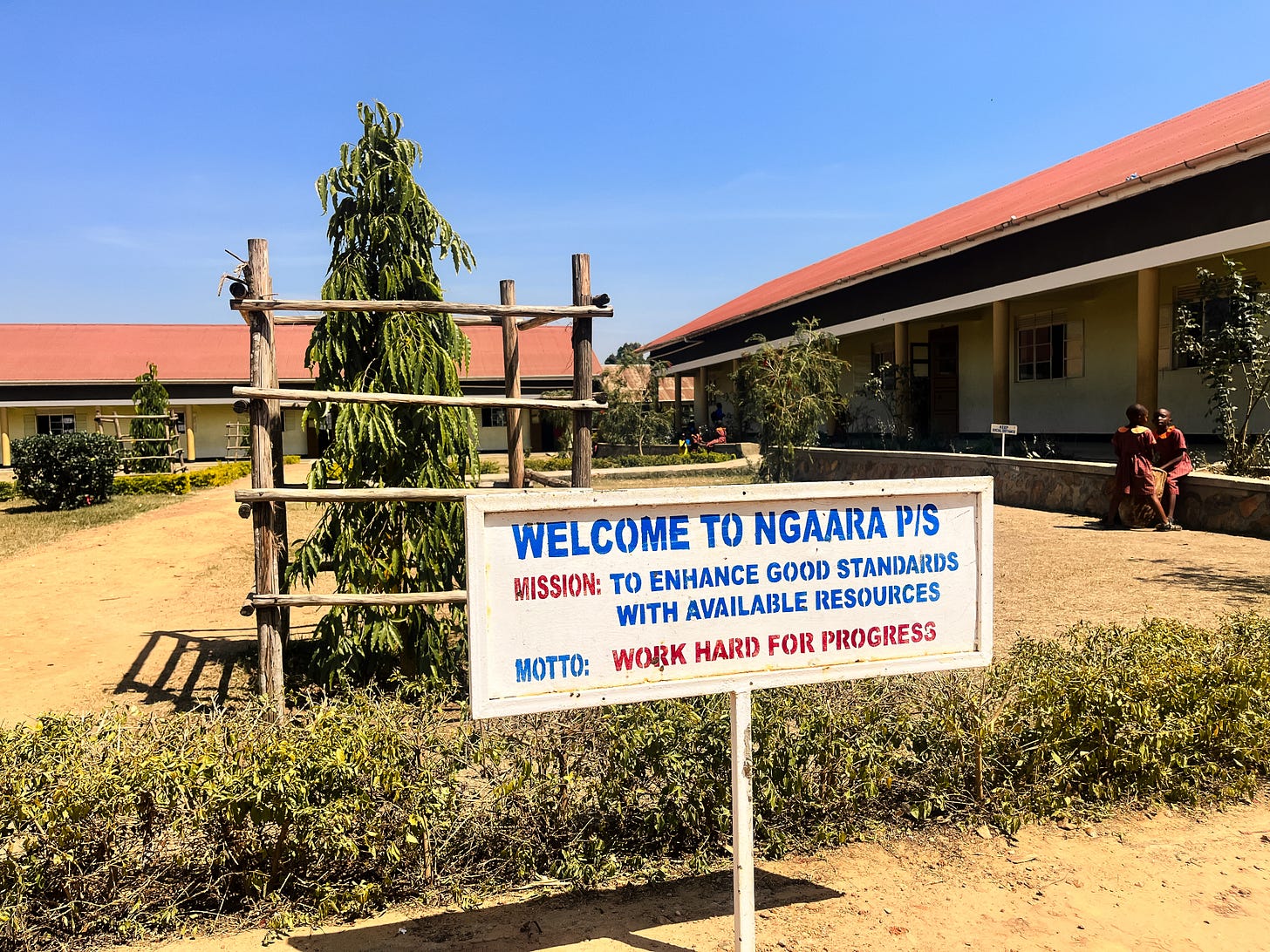
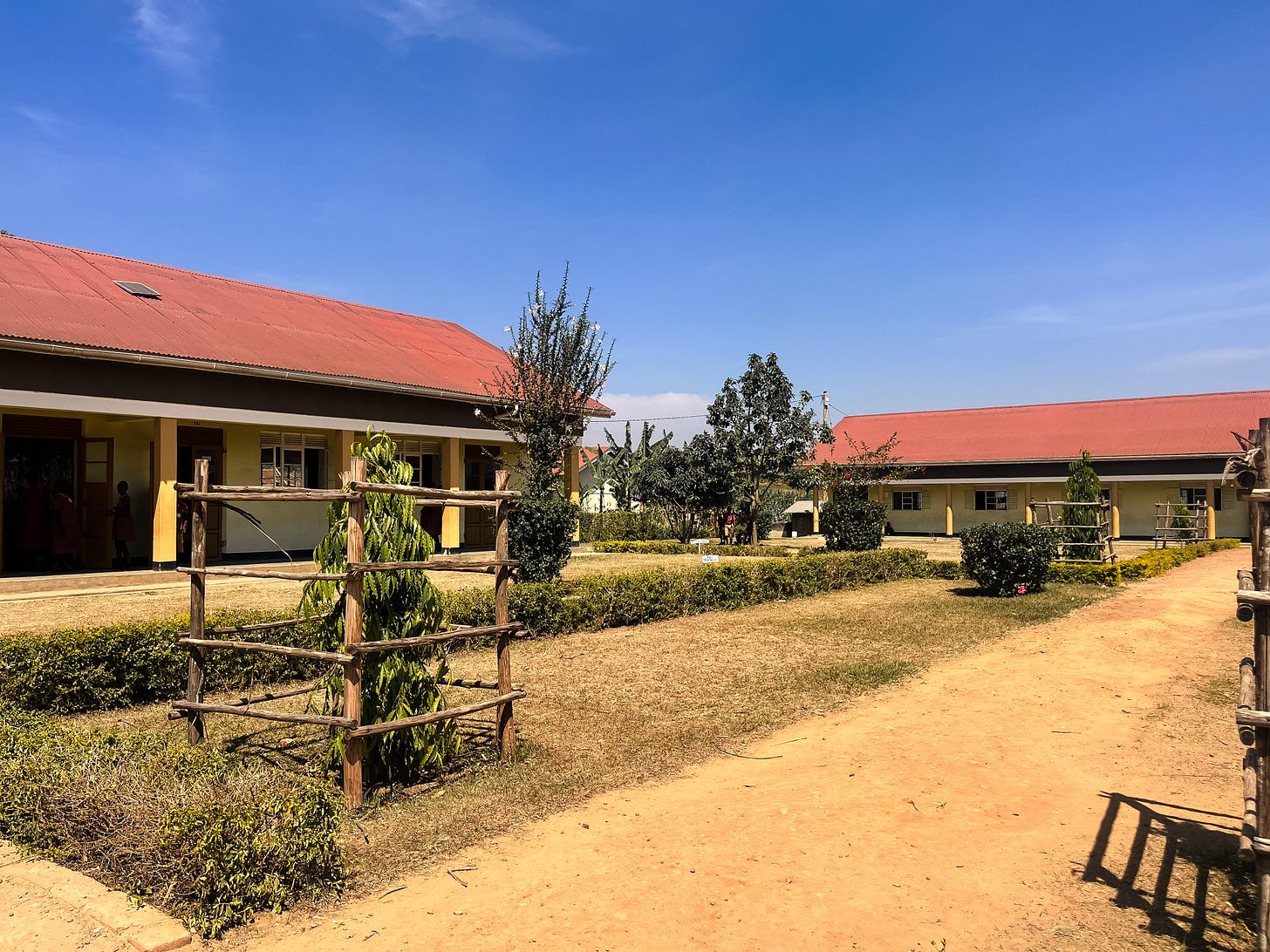
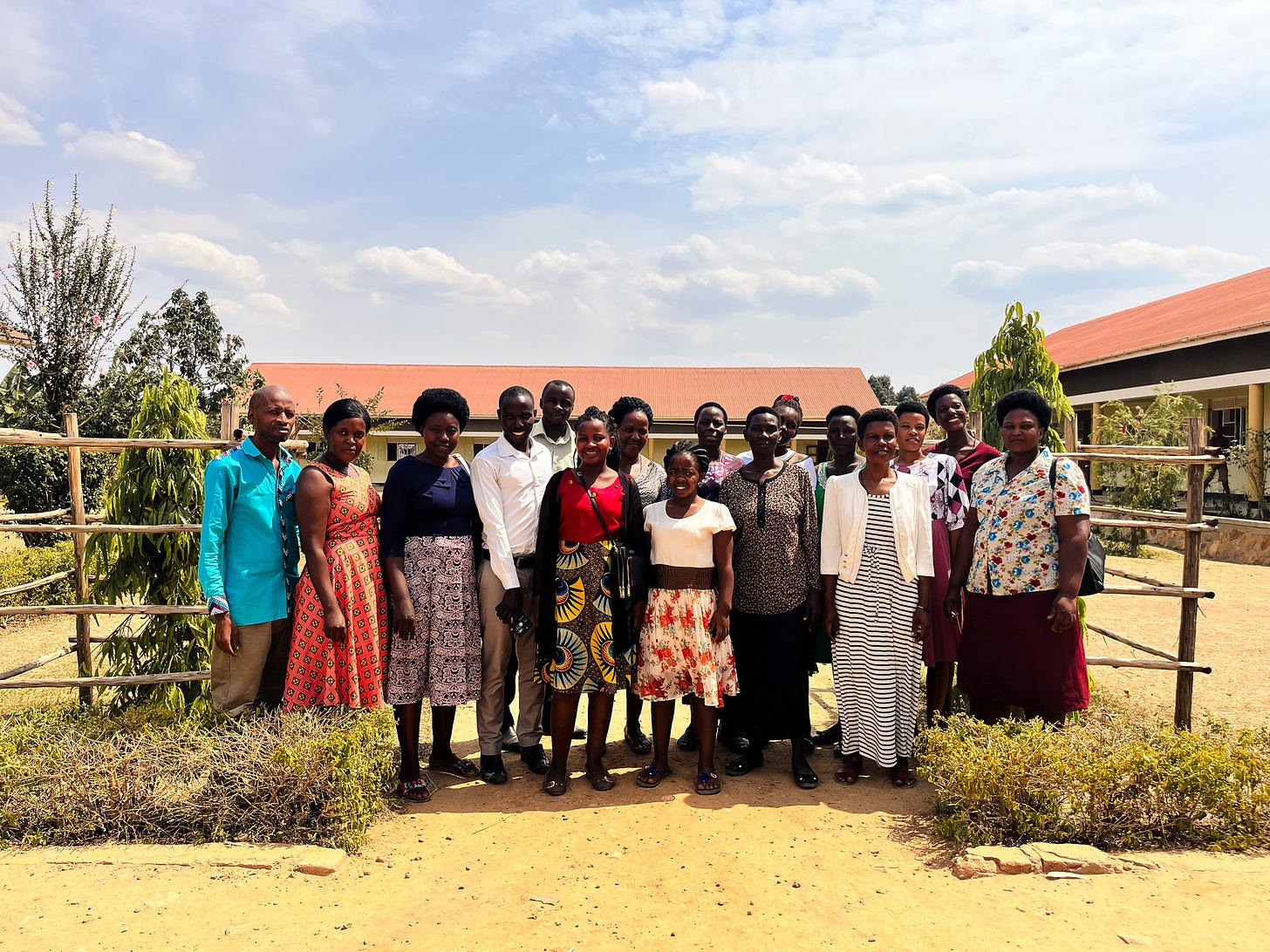
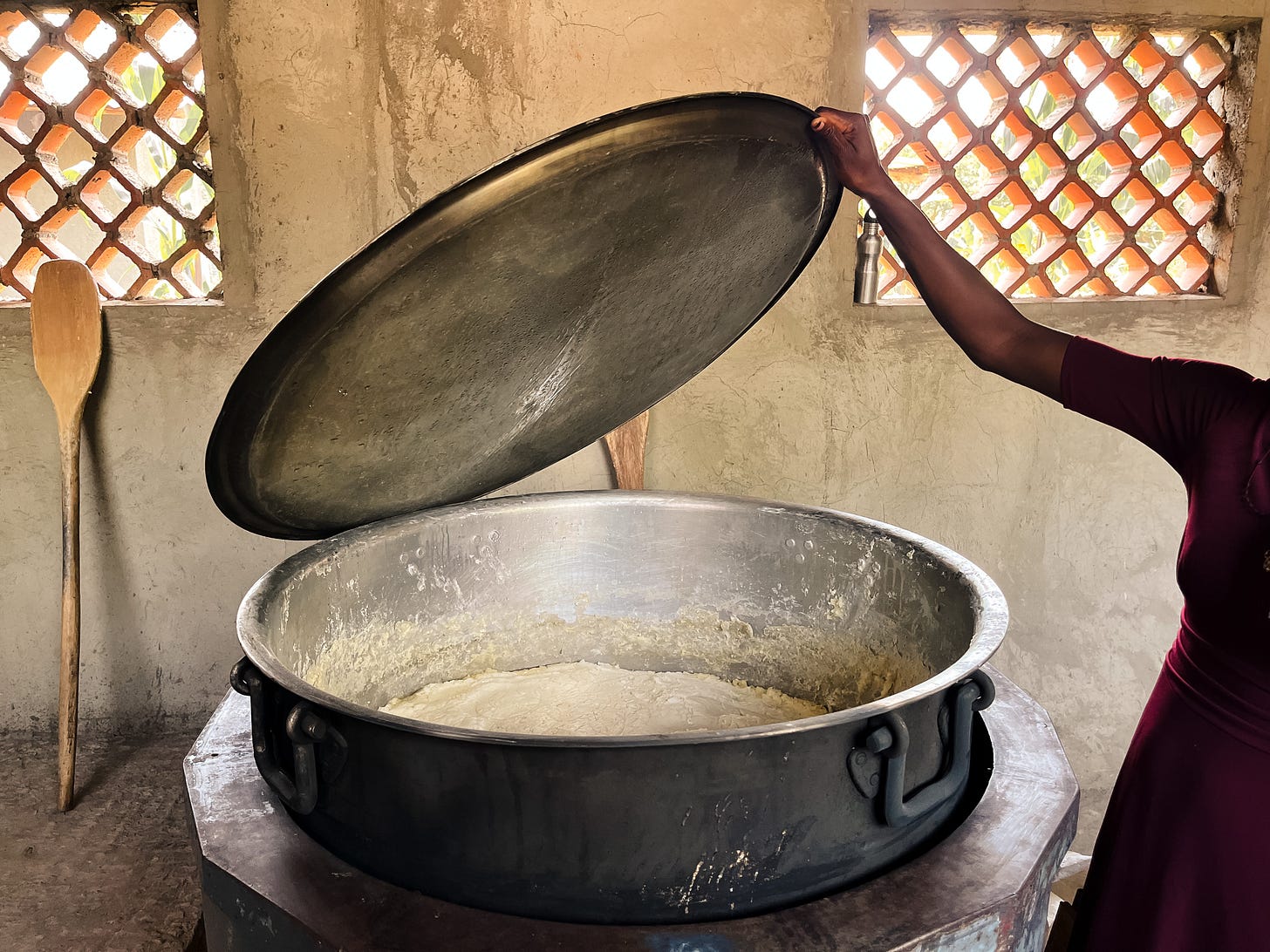
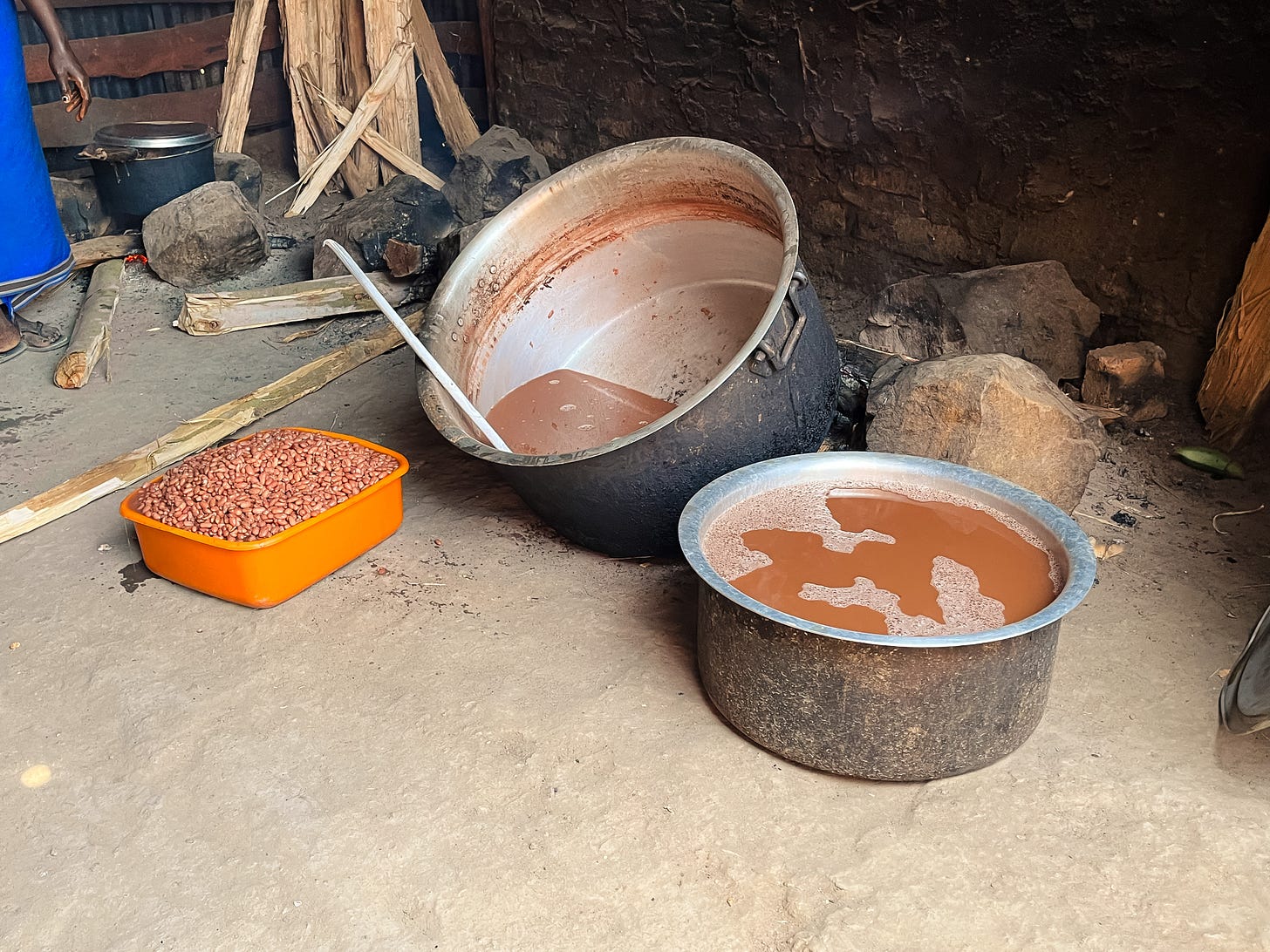


Amazing, keep going guys!